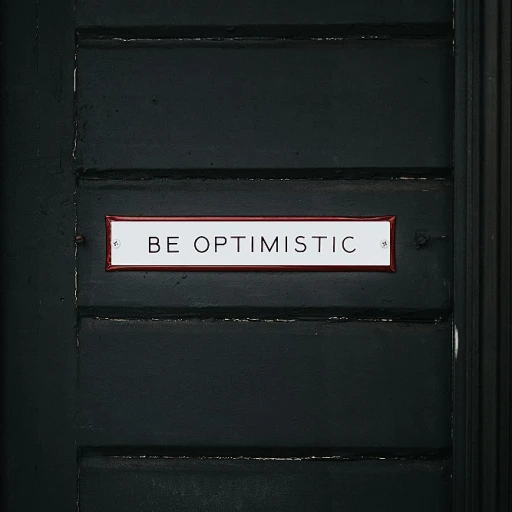
Understanding Recruitment Technology
Exploring the Landscape of Recruitment Technology
The recruitment landscape has undergone a significant transformation with the advent of technology. In the past, hiring was a manual process, often involving stacks of resumes and lengthy interviews. Today, recruitment technology has streamlined the hiring process, making it more efficient and effective for recruiters and candidates alike.
Recruitment technology encompasses a wide range of tools and platforms designed to enhance the recruitment process. These tools help recruiters manage job postings, track applicants, and communicate with candidates more effectively. From applicant tracking systems to recruitment marketing platforms, technology plays a crucial role in finding and attracting top talent.
One of the key benefits of recruitment technology is its ability to save time. By automating repetitive tasks, recruiters can focus on more strategic aspects of talent acquisition. This not only improves the efficiency of the recruitment process but also enhances the candidate experience, as candidates receive timely updates and feedback.
Moreover, recruitment technology provides valuable data that can inform decision-making. By analyzing data from various sources, recruiters can gain insights into the effectiveness of their recruitment strategies and make data-driven decisions to improve their processes.
As we delve deeper into the role of AI-driven candidate screening and the automation of administrative tasks, it's important to understand the foundation that recruitment technology provides. For those interested in exploring the role of AI in modern background checks, understanding the role of AI in modern background checks can offer valuable insights into how technology is shaping the future of recruitment.
AI-Driven Candidate Screening
AI-Powered Selection and Shortlisting
In the constantly evolving landscape of hiring and recruitment, artificial intelligence (AI) is rapidly transforming how organizations approach the selection and shortlisting of candidates. Leveraging data from recruiting software and applicant tracking systems, AI-driven tools are optimizing the recruitment process by identifying the best talent with unprecedented speed and accuracy. The integration of AI technology in recruitment platforms allows recruiters to streamline time-consuming elements of the hiring process. By automatically analyzing resumes and evaluating each candidate's fit for the job, AI tools help to manage large volumes of applications effectively. This not only reduces the administrative burden on recruiters, but also sharpens the focus on sourcing top talent.Efficiency in Candidate Screening
AI-based recruitment tools provide efficient candidate screening capabilities that are continuously refined by machine learning algorithms. These advanced algorithms process vast amounts of data to identify patterns and match candidates with specific job criteria, increasing the efficiency of the candidate selection process. By implementing AI-driven candidate screening, recruiters are able to:- Reduce the time spent on manual screening by automating routine tasks.
- Improve the quality of hires by consistently applying unbiased criteria.
- Enhance the candidate experience by providing quicker response times.
Advanced Features Utilizing AI in Recruitment
AI's role doesn't stop at primary screening. Modern recruitment technology also incorporates video interviewing platforms powered by AI, offering sophisticated features such as sentiment analysis and real-time feedback. This innovative approach not only enhances the candidate experience but also aids recruiters in making data-driven decisions with confidence. Moreover, AI tools extend their capabilities to recruitment marketing, where they analyze data-driven insights to craft compelling messaging that attracts top talent. Recruiters are seeking the best recruitment technology that seamlessly integrates with existing tracking systems to bolster recruitment marketing efforts. As AI continues to evolve, its impact on recruitment technology becomes more significant, shaping the way organizations attract, evaluate, and hire candidates. For further insights into AI's role in recruitment, particularly in the realm of modern background checks, you can explore more about AI in modern background checks.Automating Administrative Tasks
Streamlining Administrative Workflows with Automation
The integration of artificial intelligence in human resources is revolutionizing how recruiters manage administrative tasks. By automating these often repetitive processes, organizations can significantly reduce the time spent on mundane activities, thus allowing HR professionals to focus more on strategic aspects like talent acquisition and enhancing candidate experience. Administrative tasks such as sorting through countless resumes, scheduling interviews, and managing communication with candidates can be daunting. However, with the aid of AI tools, much of this workload can be efficiently handled. AI-powered recruiting software and applicant tracking systems streamline the recruitment process by automating data entry and ensuring seamless communication across platforms. Here's how AI-driven automation is helping:- Resumes are automatically screened and categorized: Eliminating the need for recruiters to manually sift through each application, speeding up the recruitment process and ensuring that only qualified candidates proceed to the next stage.
- Interview scheduling is simplified: Gone are the days of time-consuming back-and-forth emails. Automated scheduling tools sync calendars and propose suitable slots for both parties, thus reducing delays and promoting a seamless candidate experience.
- Effective communication is maintained: Automation ensures candidates receive timely updates about their application status, which is crucial for maintaining engagement and applicants' trust in the hiring process.
- Integrated communication platforms: These provide a centralized location for all recruiting activities, enabling recruiters to easily collaborate and share candidate data. This cohesion ensures a cohesive approach to talent acquisition.
Enhancing Candidate Experience
Improving the Journey for Job Seekers
In the fast-paced world of recruitment, enhancing the candidate experience has become a crucial aspect of attracting top talent. With the integration of advanced recruitment technology, companies are now better equipped to create a seamless and engaging journey for job seekers.
One of the key ways technology helps is through personalized communication. Automated tools can send timely updates to candidates, keeping them informed throughout the hiring process. This not only reduces anxiety but also builds a positive image of the company. Additionally, recruitment platforms can use data-driven insights to tailor interactions, ensuring that each candidate feels valued and understood.
Leveraging Video Interviews and Social Media
Video interviewing has revolutionized the way recruiters connect with potential hires. This tech not only saves time but also allows for a more flexible scheduling process, accommodating candidates from different time zones. Moreover, social media has become a powerful tool in recruitment marketing, enabling companies to reach a wider audience and showcase their employer brand effectively.
By utilizing these tools, recruiters can create a more interactive and engaging experience, making the recruitment process less daunting for candidates. This approach not only helps in attracting the best talent but also in retaining them by setting a positive tone from the very beginning.
Streamlining the Application Process
Applicant tracking systems (ATS) and other recruiting software have simplified the application process significantly. These systems allow candidates to apply for jobs with just a few clicks, often using their social media profiles or previously stored data. This ease of application encourages more candidates to apply, increasing the pool of potential hires.
Furthermore, by analyzing data from these systems, recruiters can identify bottlenecks in the recruitment process and make necessary adjustments to improve efficiency. This data-driven approach ensures that the recruitment tech is not only enhancing the candidate experience but also optimizing the overall recruitment process.
Data-Driven Decision Making
Leveraging Data for Strategic Hiring
In today's competitive job market, data-driven decision-making is transforming the recruitment process. By utilizing advanced recruitment technology, organizations can harness vast amounts of data to make informed decisions. This approach not only streamlines the hiring process but also enhances the overall candidate experience.
Recruiters now have access to sophisticated recruiting software and platforms that provide insights into candidate behavior and preferences. These tools help identify top talent by analyzing data from various sources, including social media, job boards, and applicant tracking systems. By leveraging this data, recruiters can tailor their recruitment marketing strategies to attract the best candidates.
Optimizing the Recruitment Process
Data-driven recruitment tools allow organizations to optimize their hiring process by identifying bottlenecks and inefficiencies. For instance, tracking systems can provide insights into the time taken at each stage of the recruitment process, enabling recruiters to make necessary adjustments. This not only saves time but also improves the overall efficiency of the recruitment tech.
Moreover, data analytics can help in predicting future hiring needs, allowing companies to proactively plan their talent acquisition strategies. By understanding trends and patterns, organizations can better prepare for upcoming recruitment challenges and ensure a steady pipeline of qualified candidates.
Enhancing Candidate Experience with Data
Data-driven insights also play a crucial role in enhancing the candidate experience. By analyzing feedback and engagement metrics, recruiters can identify areas for improvement and implement changes to create a more positive experience for job seekers. This can include optimizing communication strategies, simplifying application processes, and providing timely updates throughout the recruitment journey.
Ultimately, the integration of data into the recruitment process empowers organizations to make strategic decisions that align with their business goals. By embracing data-driven recruitment technology, companies can not only attract top talent but also foster a more efficient and candidate-friendly hiring environment.













